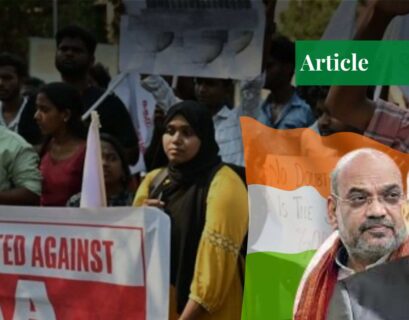Mr Saad Saleem is a research intern at SR Law. He has participated and won awards in several moot competitions.
Supreme Court has recently opened up a new episode of the Supreme Court rules and regulations saga by introducing the live telecast of a court hearing heard by the full Supreme Court i.e., the 15-member bench of Supreme Court judges. This hearing is initiated by the petitioners arguing that the Parliament lacks legislative competence to draft the Supreme Court (Practice and Procedure) Act 2023 which intrudes on the Supreme Court’s power of making rules for its regulation and thus poses a considerable threat to the independence of the judiciary.
The Supreme Court Practice and Procedure Bill 2023 was introduced by the Pakistan Democratic Movement (PDM) and was made an act in 2023. However, Chief Justice Umar Atta Bandial withheld its operation on the petition stating that the law was unconstitutional and violated the independence of the judiciary.
The first question we have is to answer the unconstitutionality of the bill passed by Parliament. Regarding this, it is imperative to first highlight that in Pakistan, even the Parliament is subject to the constitution and it is wrong to believe that Parliament is omnipotent as stated by the Supreme Court itself in District Bar Association, Rawalpindi vs Federation of Pakistan (2015 PLD SC 401).
Furthermore, any act passed by Parliament is unconstitutional when it is in violation of Article 70 of the Constitution of Pakistan 1973. As per Article 70(1) of the constitution, the Parliament is lawful to make any law that is covered under the Federal Legislative List provided under Schedule IV of the constitution. If we examine entry 55 of Part I of the FLL, it is provided that parliament can legislate on:
“55. Jurisdiction and powers of all courts, except the Supreme Court, with respect to any matter on the list…. and for the enlargement of jurisdiction of Supreme Court and the conferring on it supplemental powers”.
As per entry 55, the Parliament can make rules as to the enlargement of the jurisdiction of the Supreme Court and for conferring supplemental powers. The concept of conferring supplemental powers is very important as it highlights the legislative competence of the Parliament to make rules when it deems necessary to firstly, bestow or grant additional powers which are necessary for the effective use of powers already granted or secondly, which are necessary for more effective management of power already granted. The word “supplement” has been defined by the Black’s Law Dictionary as something that is added to supply defects in things already made.
The second relevant entry that needs considerable attention is entry 59 (Matters incidental or ancillary to any matter enumerated in this part). As per entry 59, the Parliament can make rules regarding anything that aids a thing that is principal to another. Before the Supreme Court (Practice and Procedure Act) 2023, the suo motu powers and the framing of the bench were the sole prerogative of the Chief Justice of Pakistan. After the promulgation of this bill, the decision must now be taken by the Chief Justice and the two senior-most judges of the Supreme Court.
The involvement of two senior judges ensures that the power is not absolutely in the hands of one person and that decisions are taken more effectively. The administration of jurisdiction already provided under article 184(3) brings the legislation within the ambit of entry 55. Thus, making this legislation within the four corners of the constitution and legislative competence of the Parliament of Pakistan.
This argument is also in line with the Supreme Court’s view in the case of District Bar Association Rawalpindi vs Federation of Pakistan in which it is stated that whenever there is a clash between the powers of Parliament and the powers of the Supreme Court, the opinion should be made while favoring the Parliament. The law is also in line with the Islamic principles of taking discussions on the basis of discussion with colleagues and members of the Shura.
If you want to submit your articles, research papers, and book reviews, please check the Submissions page.
The views and opinions expressed in this article/paper are the author’s own and do not necessarily reflect the editorial position of Paradigm Shift.



















